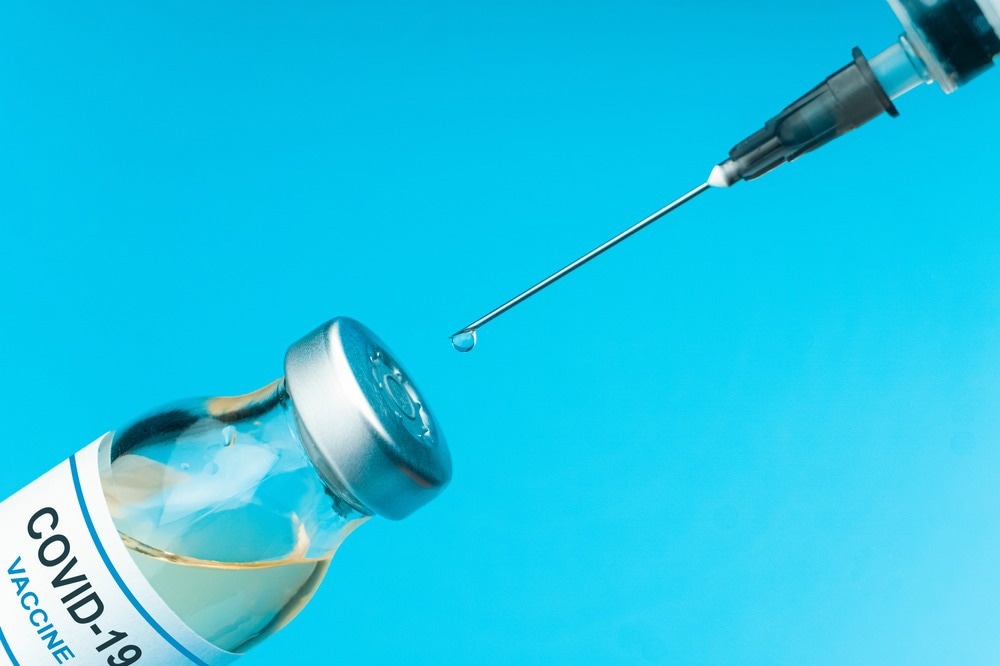Due to the continuous emergence of new immune evasive and more pathogenic variants of the severe acute respiratory syndrome coronavirus 2 (SARS-CoV-2), current coronavirus disease 2019 (COVID-19) vaccines have become less effective in preventing infection. As a result, Moderna has developed a novel bivalent vaccine that has recently been shown to elicit superior immune responses against these novel viral variants.

Image Credit: Seda Yalova / Shutterstock.com
The escape properties of the Omicron variant
Since its initial emergence at the end of December 2019, SARS-CoV-2, which is the virus responsible for causing COVID-19, has undergone extensive mutations. Many of these mutant strains of SARS-CoV-2, particularly SARS-CoV-2 variants of concern (VOCs), are capable of evading host immunity elicited by both vaccination and natural infection.
The SARS-CoV-2 Omicron VOC, for example, was originally detected in November 2021 in Botswana, South Africa. Since then, Omicron has further evolved into several subvariants, some of which include BA.1, BA.2, BA.3, BA.4, and BA.5.
Several studies have reported that Omicron and its sublineages are capable of escaping neutralization by individuals who have received two doses of a messenger ribonucleic acid (mRNA) vaccine. As a result, researchers sought to increase the potency of current COVID-19 mRNA vaccines against this variant by recommending a third booster dose.
Despite these efforts, several studies have shown that three doses of current mRNA vaccines provide only partial protection against SARS-CoV-2 infection with the Omicron variant.
Moderna’s bivalent Omicron booster vaccines
Moderna, which is an American biotechnology company that pioneered mRNA vaccine technology, has recently developed a bivalent COVID-19 vaccine booster dose capable of overcoming some of the limitations associated with their initial COVID-19 vaccine formulation. More specifically, this bivalent vaccine contains equal amounts of mRNAs that encode for both the ancestral SARS-CoV-2 and Omicron variant spike proteins.
Moderna is currently conducting a phase II/III trial aimed at evaluating the immunogenicity, safety, and reactogenicity of a 50 microgram (µg) dose of the bivalent vaccine candidate. Herein, researchers are assessing the efficacy of their novel vaccine in study participants who received a two-dose primary series, as well as a third booster dose of the Moderna mRNA-1273 vaccine at least three months prior to the start of the study.
Taken together, a total of 819 people have participated in this study to date. Of these individuals, 437 study participants were assigned to receive the novel bivalent vaccine dose, whereas 377 received a second booster dose of the original Moderna mRNA-1273 vaccine.
Both patient groups reported similarly mild adverse reactions, the most frequent of which included pain at the injection site, fatigue, headache, myalgia, and joint stiffness. Importantly, no deaths nor adverse effects that required discontinuation from the study were reported.
Patients who received the bivalent booster dose exhibited mean neutralizing antibody titers of 2,372.4 against the Omicron variant, which was comparable to the mean value of 1,473.5 in study participants who received mRNA-1273 boosters 28 days after immunization. This remained true in patients with a prior history of COVID-19.
Additionally, the bivalent booster vaccine successfully induced higher neutralizing antibody titers against the Omicron BA.4/BA.5 subvariants, as well as the Alpha, Beta, Gamma, and Delta variants, regardless of a prior SARS-CoV-2 infection. This superior antibody response was maintained for at least three months following receipt of the bivalent booster vaccine dose. These vaccine responses were consistent in study participants over the age of 65, thus indicating that this high-risk group is effectively protected against infection with the Omicron variant.
The neutralizing activity of sera obtained from bivalent booster vaccine doses has also been tested against the BQ.11 strain of SARS-CoV-2, which is a novel variant that has been increasingly reported throughout the world. These findings indicate that this novel vaccine formulation has the potential to protect against other new SARS-CoV-2 variants.
We are pleased to see that both of our bivalent booster vaccine candidates offer superior protection against Omicron BA.4/BA.5 variants compared to our original booster, which is encouraging given COVID-19 remains a leading cause of hospitalization and death globally.”